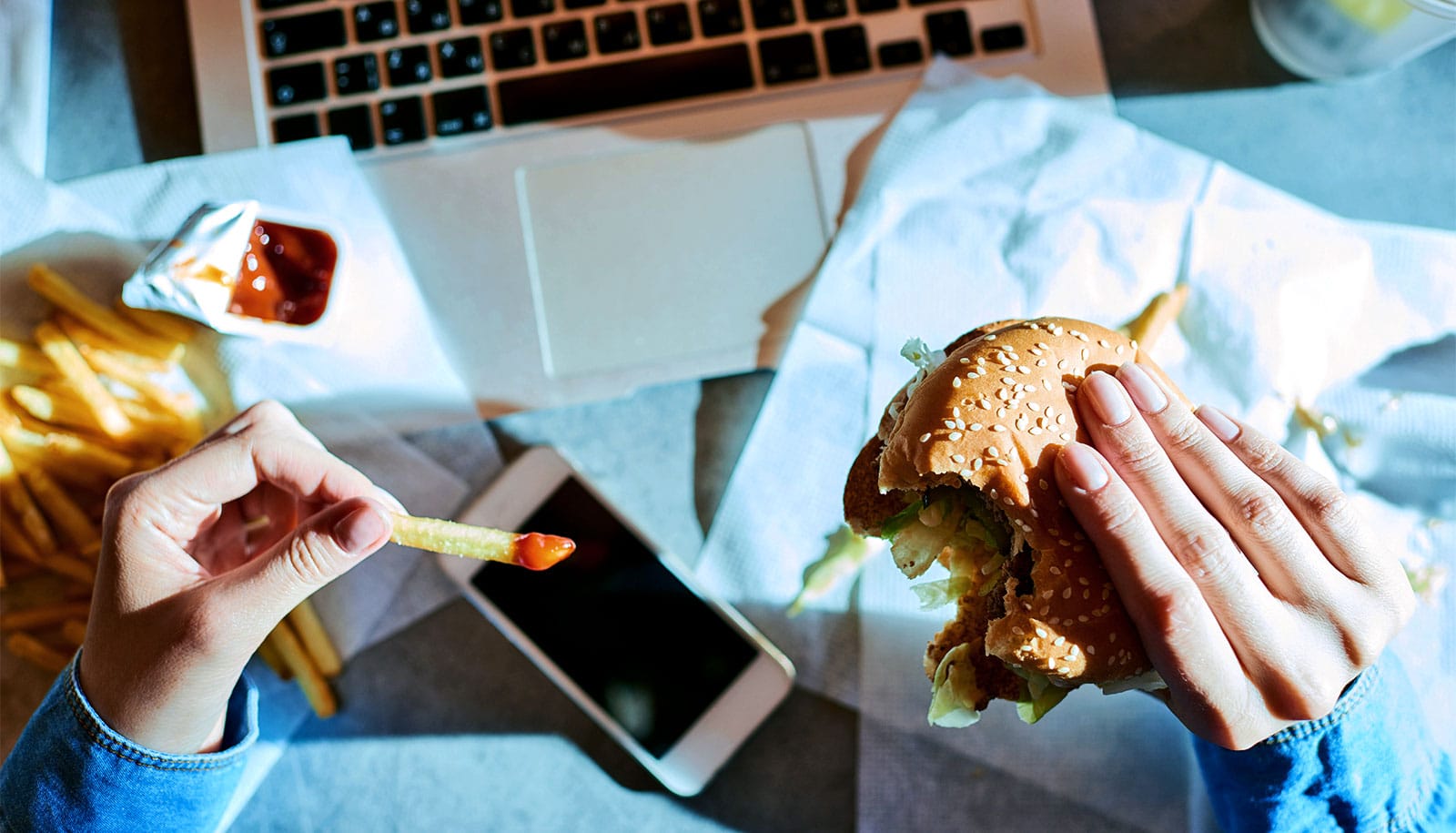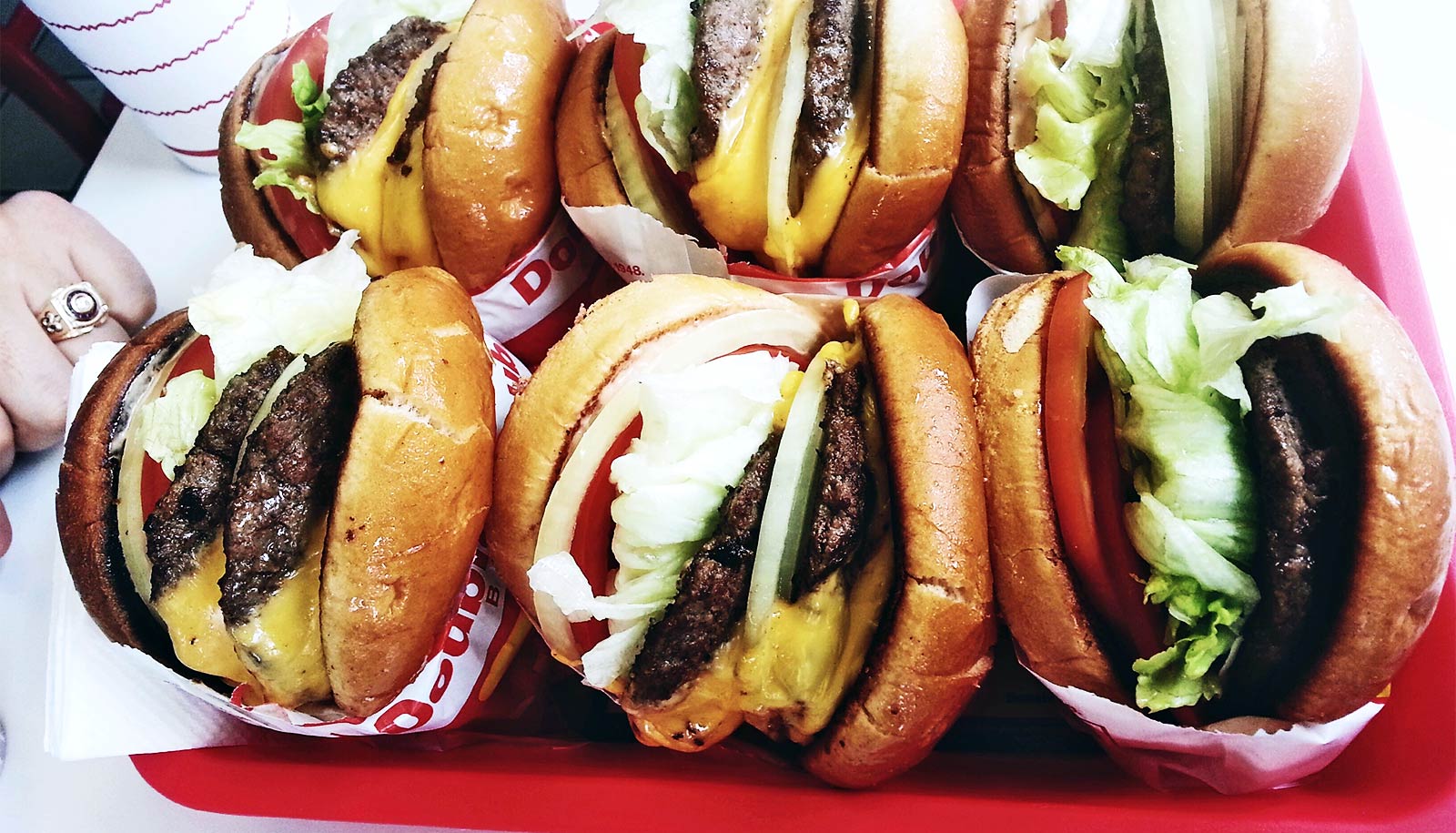Mindless switching between digital devices is associated with increased susceptibility to food temptations and lack of self-control, which may result in weight gain, according to new research.
“Increased exposure to phones, tablets, and other portable devices has been one of the most significant changes to our environments in the past few decades, and this occurred during a period in which obesity rates also climbed in many places,” says lead study author Richard Lopez, a postdoctoral research fellow at Rice University.
“So, we wanted to conduct this research to determine whether links exists between obesity and abuse of digital devices—as captured by people’s tendency to engage in media multitasking.”
The researchers conducted the work in two parts. In the first study, 132 participants between the ages of 18 and 23 completed a questionnaire assessing their levels of media multitasking and distractibility. This was done using a new, 18-item Media Multitasking-Revised (MMT-R) scale. The MMT-R scale measures proactive behaviors of compulsive or inappropriate phone use (like feeling the urge to check your phone for messages while you’re talking to someone else) as well as more passive behaviors (like media-related distractions that interfere with your work).
The researchers found that higher MMT-R scores were associated with higher body mass index and greater percentage of body fat, suggesting a possible link.
When media multitaskers saw pictures of food, researchers observed increased activity in the part of the brain dealing with food temptation.
In follow-up research, 72 participants from the prior study underwent an fMRI scan, during which the researchers measured brain activity while people were shown a series of images. Mixed in with a variety of unrelated photos were pictures of appetizing but fattening foods.
When media multitaskers saw pictures of food, researchers observed increased activity in the part of the brain dealing with food temptation. These same study participants, who also had higher BMIs and more body fat, were also more likely to spend time around campus cafeterias.
Overall, Lopez says these findings, although preliminary, suggest there are indeed links among media multitasking, risk for obesity, brain-based measures for self-control, and exposure to real-world food cues.
“Such links are important to establish, given rising obesity rates and the prevalence of multimedia use in much of the modern world,” he says of the findings.
Lopez and his fellow researchers hope the study will raise awareness of the issue and promote future work on the topic.
The study appears in Brain Imaging and Behavior. Additional coauthors are from Dartmouth College and Ohio State University.
Source: Rice University



